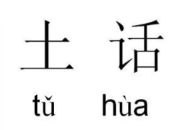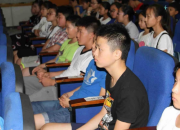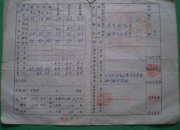高一英语上学期unit12课件
时间:2021-08-31高一英语上学期unit12课件
高一英语上学期unit12的课件应该怎么设计?设计课件要明确教学目标、要突出重点难点、要有灵活的教学形式、教学对象要有针对性。下面小编给大家带来高一英语上学期unit12课件,欢迎大家阅读。
高一英语上学期unit12课件1
Teaching aim:
Revise the grammar ------ the Attributive Clause
Teaching procedures:
Step 1,
Leading in
1. Ask students to guess some riddles.
(1) It is an animal that jumps on its strong legs and carry its young in a bag on the front of its body. (kangaroo)
(2) It is a thing that you hold above your head to keep yourself dry when it is raining. (umbrella)
(3) It is a soft, round fruit that has a red skin and can be eaten in salad or as a vegetable. (tomato)
(4) It is a building where travelers and others may get food and a room to live in. (hotel)
(5) It is a season of the year when the weather becomes warmer and plants start to grow again. (spring)
(6) It is someone who is trained to help a doctor to look after the sick or injured. (nurse)
Step 2: Revision
1. Ask students to review definition of the attributive clause and the antecedents, and then ask students to point out the antecedents, relative pronouns and relative adverbs of the following sentences.
(1) This is the doctor who saved the boy’s life.
(2) Please pass me the book which is lying on the table.
(3) She is the new student whom I want to introduce to you.
(4) The novel which Tom bought is very interesting.
(5) The professor whose daughter teaches you English is Dr. Williams.
(6) I know the reason why she studies so well.
(7) This is the room where he put up for the night.
(8) We’ll never forget the day when the People’s Republic of China was founded.
2. Ask students to summarize the relative pronouns and relative adverb.
(1) Which or that is used to introduce an Attributive Clause about things.
(2) Who, whom or that is used to introduce an Attributive Clause about people.
(3) Where is used to introduce an Attributive Clause about places.
(4) When is used to introduce an Attributive Clause about time.
(5) Why is used to introduce an Attributive Clause about reason.
3. Ask students to read the following sentences and to summarize the characters of the antecedents used as subject in the attributive clause.
(1) The house which they built in 1987 stayed up in the earthquake..
(2) The baby who I looked after yesterday is my niece.
When the antecedents used as subject in the attributive clause, the relative pronouns should be who, whom, which, that, or none.
4. Ask students to read the situation and to make the words in right order.
Situation ------
Mrs. Green got married just last month. She is learning to be a good wife. But she really has a headache about buying, keeping and cooking food. Can you give her some instructions?
(1) Don’t / buy /potatoes/ are green
Don’t buy the potatoes which/that are green.
(2) choose / vegetables / fresh
Choose the vegetables which/that are fresh.
(3) choose / fish / fresh / has bright eyes
Choose the fresh fish which/that has bright eyes.
(4) buy your food / from shopkeepers /always busy
Buy your food form the shopkeepers who are always busy.
(5) keep any cream, butter or cheese / you buy / in the fridge
Keep any cream, butter or cheese which/that/_ you buy in the fridge.
(6) put everything / you need while cooking / in a place / find it easily.
Put everything that you need while cooking in a place where you find it easily.
(7) put / the dish / left / after a meal / in the fridge
Put the fish which/that is left after a meal in the fridge.
5. Ask students to write the sentences according to the language environment.
(1) Alice is a real ice-cream fan. She can eat at least two big ice-creams a day. She even said that she was not going to make friends with anyone who didn’t like ice creams.
(2) Mr. Smith’s house was broken into and his expensive camera and golden watch were stolen. The police discovered a red hair in the room. So they are looking for those people who have red hair.
(3) Meat goes bad easily in summer. So do remember to put it in a place where it is cold.
(4) Some women are crazy about shopping. They never make a shopping list. So when they go back home after shopping they always find they have bought a lot of things they needn’t at all.
(5) Twenty-years has passed and the city of Tangshan takes on a new look. However, many people there will never forget the terrible day when the earthquake destroyed the city.
6. Ask students to fill in the blanks with the relative pronoun and to summarize the relative pronoun “that” should be used in what condition.
(1) “The Matrix” is the best movie that I have seen.
(2) English is the most difficult subject that you will learn these years.
------ 先行词是最高级形容词或是它的前面有最高级形容词时
(3) He is the last person that I want to see.
(4) It’s the first American movie of this kind that I’ve ever seen.
------ 先行词是序数词,或它前面有一个序数词时
(5) Which is the bike that you lost?
(6) Who is the woman that was praised at the meeting?
------主句已有疑问词who 或which时
(7) Do you know the things and persons that they are talking about?
(8) The bike and its rider that had run over an old man were taken to the police station.
------先行词既有人又有物
(9) You should hand in all that you have.
(10) We haven’t got much that we can offer you.
(11) I mean the one that you talked about just now.
------先行词是all, much, little, something, everything, anything, nothing, none,
the one等代词时
(12) The only thing that we can do is to give you some money.
(13) This is the same person that I met yesterday.
(14) Ken is the very person that stole my wallet.
------先行词前面only, any few, little, no, all, the same, the very等词修饰时
(15) Edison built up a factory which produced things that had never been seen before.
(16) The man who is at the table is his brother that has been serving in the army.
------有两个定语从句,其中一个关系代词已用which, 另外一个用that
7. Ask students to read the following passage and try to join sentences using the attributive clause.
Mary’s Party
Everybody went to Mary’s party last Saturday evening. Everybody had a good
time. Mary cooked the food. It was very delicious. I liked the dress. Lucy was wearing it. It suited her well. I also met someone. I had not seen him for years. His name is James. He said he never forgot the last day in college. On that day, we enjoyed ourselves. James told us that he had just flown from Greece. He had been living in Greece for the past five years. He came back here to give an exhibition. The exhibition is about Greek art.
Everybody who went to Mary’s party last Saturday evening had a good time. Mary cooked the food which was very delicious. I liked the dress which/that Lucy was wearing. It suited her well. I also met someone who/whom/_ I had not seen for years. His name is James. He said he never forgot the day when we enjoyed ourselves. James told us that he had just flown from Greece where he had been living for the past five years. He came back here to give an exhibition which is about Greek art.
8. Ask students to do true or false.
(1) An Attributive Clause is used to tell people more clearly which person or thing is being discussed. (T)
(2) While we are writing a composition, we should use Attributive Clauses as many as possible. (T)
(3) If we can use Attributive Clauses in a proper way, our writing will be improved. (T)
(4) We use more Attributive Clauses in written English than we do in oral English. (T)
9.Ask the students to read the sentences and translate the following sentences into Chinese:
1.He who knows nothing but pretends to know everything , is indeed a good-for –nothing.
不懂装懂,一事无成.
2. He that makes himself a sheep shall be eaten by the wolf.
甘当小绵羊,迟早要喂狼.
3. It’s the first step that costs.
万事开头难
4. He who would climb that ladder must begin at the bottom.
千里之行,始于足下。
5. He who is full of himself is very empty.
自满的人腹中空.
6.Not all that glitters is gold.
闪光的未必都是金子
Period 6 Integrating Skills
Teaching aim:
Get students to know how to write a poster.
Teaching procedures:
Step 1, Fast reading
a) Read the passage and do the exercises. ( Page 120 《丰台分院紫皮练习册》)
b) Guessing the meaning of the following words.
Ask the students to match the sentences with the same meaning .
1) whisper
2) stupid
3) password
a) a secret word or phrase that one uses to gain admittance or access to information.
b) to speak quietly and privately
c) lacking or marked by a lack of intelligence
Step 2, Read in details.
1. The Ss ask and answer in pairs.
(1) What was the password?
(2) What was strange with the statue?
(3) Who told them that a password could work much?
2. Ask the students to fill in the blanks with the correct information.
Main characters Tom and Pete
Place of the event Before a statue
Reason for what happens Noise coming from behind the statue
Ending of the event
Step 3, Pre-writing
1. Work in groups of four. Let students discuss what a good poster should have.
1) Colorful and interesting.
2) Necessary information.
2. Discuss the topic they are going to choose.
3. Ask the students to list the necessary information of the chosen topic.
1) What is the name of the film?
2) Why should people watch the film?
3) What is the film about?
4) What stars are in the film?
5) Where will the film be shown?
6) When will the film start?
7) How much are the tickets?
4. Writing
The teacher should do the following before the students write a poster:
1) Go over the requirements of writing, and make sure the students know what to do.
2) Tell the students what they should do before writing.
Step 4. While writing
Get the students to write their own posters.
Step 5. Post writing
Do evaluation after finishing their poster.
1) picture
2) writing skills ( spelling, structure, grammar, capitalicalion)











